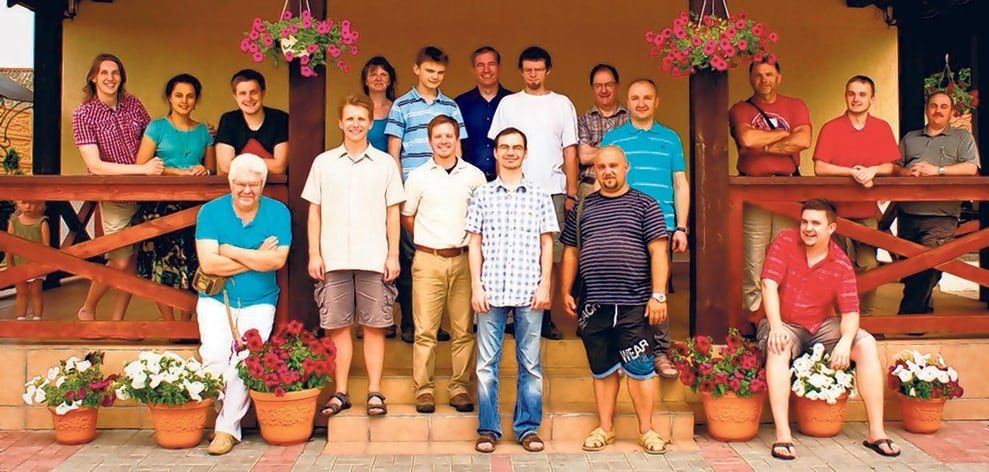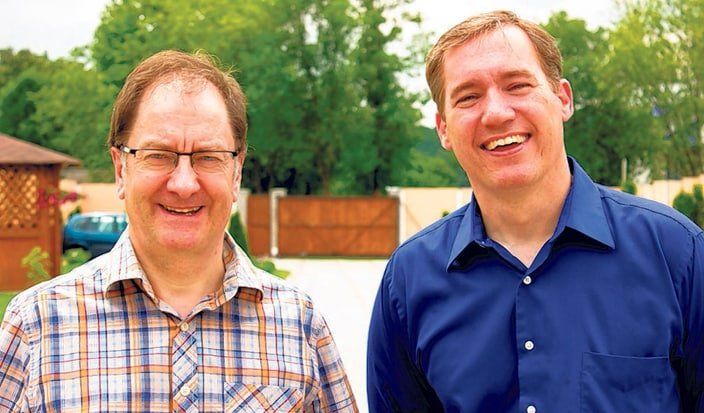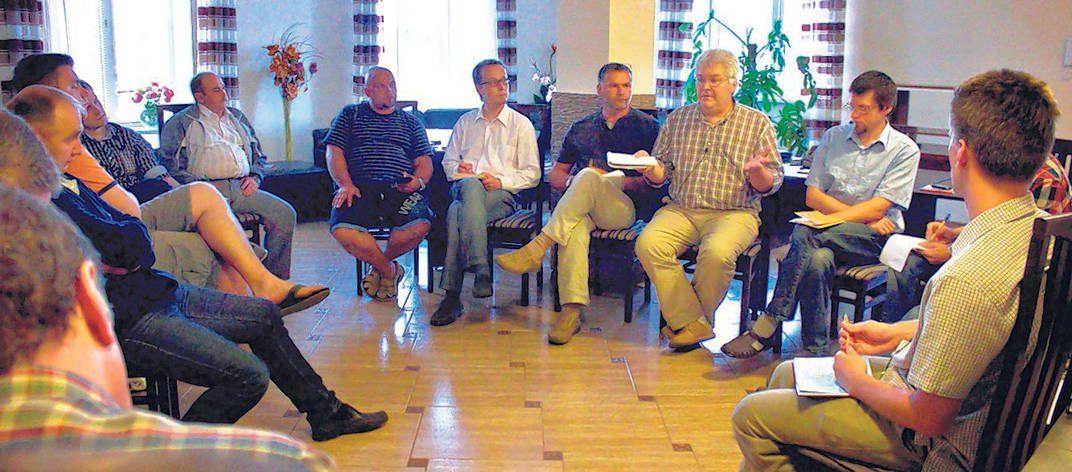On 25-27 June, the first Summer School of Reformed Theology took place in Minsk. It was a small but new event for my country.
Our goal is to change the ethos of Christian conferences in Belarus. We are not obsessed with numbers, but focussing on a different kind of fellowship. The aim is not motivational, entertaining or pietistic, but purely theological.
Discussion
We invited a dozen ministers of Reformed congregations (both paedo-Baptist and Baptist) for three days of theological training and discussion. Some of them already had formal seminary degrees, some had not. All had an appreciation of Reformed theology; not just the five ‘TULIP’ points, but the Reformed theological tradition as a whole.
We also invited two lecturers from the West. Jeffery Stivason, an adjunct professor of systematic theology, from Reformed Theological Seminary (Pittsburgh, USA); and Hector Morrison, principal of Highland Theological College (Dingwall, UK).

Jeff taught us on the doctrine of the Trinity; Hector led us through Genesis 1-3 from the perspective of biblical theology. The sessions lasted from early morning to early afternoon.
In the late afternoon, from about 5.00-7.00pm, we had a theological ‘round table’. And this was — I am not afraid to use this strong word — a unique way of learning theology for Belorussian pastors.
In our post-Communist, authoritarian culture, open discussion of theological issues never took place. The right people always knew the right answers; discussion of equals was not welcomed. But, by God’s grace, we have dared to tread a path that Western Europe has been following since Martin Luther’s nails were hammered into the gates of the Wittenberg church.
Ideas
The questions for the round table were carefully chosen to be as ‘unpractical’ as possible. We want to discuss theological ideas, not day-to-day practical church issues.
Questions included: Is theology a science? How do the confessional documents of Baptists and Presbyterians differ in their approach? What is theological education?
Any of these topics could have looked like failing if we wanted to generate an hour or two’s lively discussions. We were prepared to admit our mistake, but did not have to!
We wanted ‘boxing matches’ around the round table and we got exactly that — heated debates, at a rather abstract and theoretical level! Even our Western guests couldn’t keep out of the conversation. They followed the discussion through a competent interpreter and expressed their own views, with reasons, on all the major points under consideration. Success!
The format of morning lectures followed by the afternoon discussion also proved a good pattern. We lost no time and made everyone (including Westerners) do the maximum amount of intellectual work over three days. The guys enjoyed it all!

And this School was all made possible by the American mission, Heart Cry. Heart Cry supports nearly 200 missionaries all over the world (including Russia, Belarus, Kazakhstan and Ukraine) and sees the key to healthy churches as good theological training for their indigenous pastors.
Evaluation
What conclusions can we draw from what happened? The three days showed that there is a need and demand for an academic approach to theological education among Belorussian pastors.
What might the next step be? The Summer School format was great, but not perfect. Some of the pastors who listened to the lectures were, in fact, able to teach at a good academic level too. We ought to start using our own local men to teach theology.
We are already beginning to discuss a course called ‘Introduction to reformed theology’, to be taught by Russian-speaking men.
The audience for this could be twofold: the members of our own Reformed churches and ministers from other churches interested in widening their theological horizons. What the end product will be, we have yet to see.
Books
As the director of the publishing house Gospel and Reformation (Evangelical Press), I aim at providing this planned proto-seminary with much needed theological books.

Berkhof’s Systematic theology will hopefully be released by this Christmas. Thanks to the Lord, John Calvin’s Institutes and his New Testament commentaries are already available in Russian. Sinclair Ferguson’s The Holy Spirit, Edmund Clowney’s The church, Joel Beeke’s Living for God’s glory are being translated right now.
I wish we had enough resources to introduce B. B. Warfield’s volumes to the Russian reader too. And there are many other titles in our ‘Project 100’ books which are crying out to be translated into Russian.
We thank God for the progress we have made in all these things and look to him to provide for the future.
Slava Viazovski









